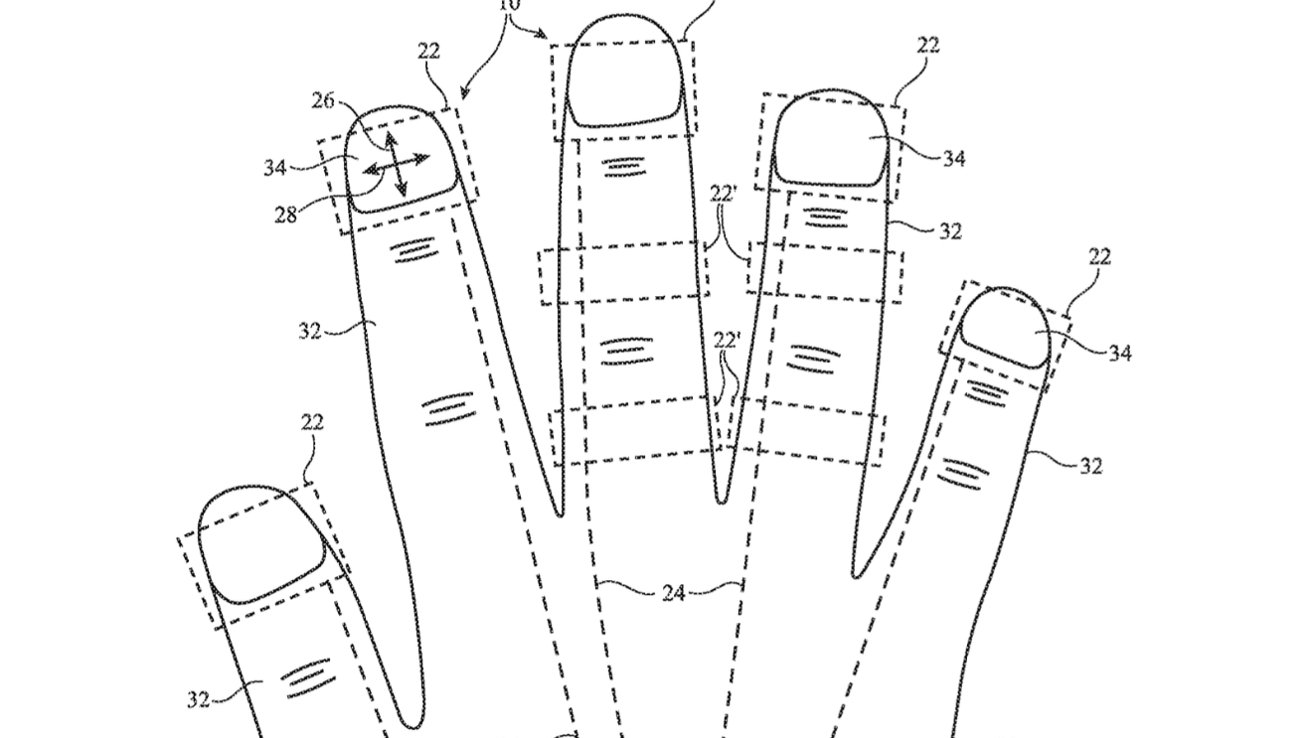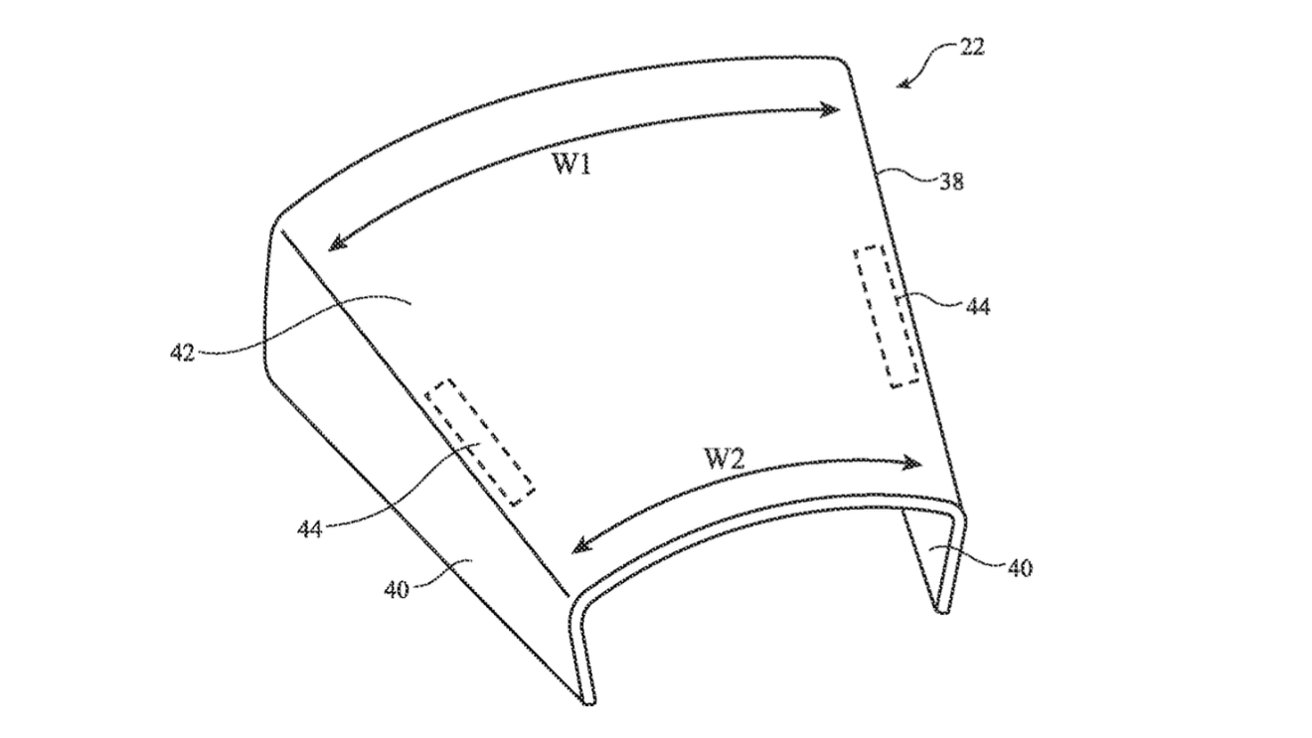It’s not enough to be able to see digital elements in the real world through the Apple Vision Pro, Apple wants a complete sensory experience, including feel.
A newly-granted patent appears to be yet another one revealing that Apple has been researching Smart Rings. It comes after recent rumors that such a ring is imminent, and that Apple is pushing to make more wearables including such a device.
Yet “Finger-Mounted Device with Sensors and Haptics,” Apple’s newly granted patent, appears to be less about what you could do with a smart ring, and more about slotting us all into an Apple AR world. Some of the detail definitely describes rings, but most of it is about fingertip sensors.
Sometimes that’s sensors on every fingertip, and while Apple would never stop anyone buying 10 smart rings, the descriptions are a better fit for manipulating AR objects. Especially as Apple starts off by comparing this idea to the use of gloves.
“Electronic equipment such as computers and head- mounted display systems are sometimes controlled using input-output devices such as gloves,” it says. “A glove may have sensors that detect user hand motions.”
However, the use “of wearable devices to gather input for controlling electronic equipment can pose challenges,” continues Apple. “If care is not taken, a device such as a glove may affect the ability of a user to feel objects in the user’s surroundings,” says the patent, “may be uncomfortable to use, or may not gather suitable input from the user.”
Apple’s proposed solution is “a wearable device such as a finger-mounted device [that] may be used to gather input from a user’s fingers as the user interacts with surfaces in the user’s environment and may be used to provide clicks and other haptic output during these interactions.”
So if someone throws you a virtual ball while wearing Apple Vision Pro and such wearable devices, the haptic sensors in the fingertips could mimic the sensation of catching it. Or if you are using the frankly inadequate virtual keyboard in visionOS, at least you could “feel” when you’ve pressed a key.
Just as it relays sensation to the user, so the user’s use of rings or finger-mounted devices can report information back to the system.
“The input that is gathered in this way may include information on how firmly a user is pressing against objects (finger press input),” says Apple, “finger tap input associated with light taps of a user’s finger against a surface, lateral finger movement information such as shear force information indicating how firmly a user is pressing their finger sideways on a surface, and other user input.”
This “shear force information” could also be interpreted as input to an application. “This allows the user’s own fingertip to be used as a pointing device (e.g. to be used as a joystick),” continues the patent, “that can control an on-screen cursor or other adjustable system feature in a device.”
The newly-granted patent is credited to 12 inventors, including the prolific Paul X. Wang. His previous related work includes a patent for haptic touch feedback on the Apple Pencil.



